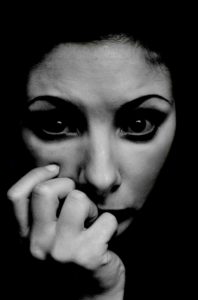Treatment for Anxiety: No Medication Needed
 In this age of social media, more and more people, including popular entertainers, are posting their struggles with anxiety.
In this age of social media, more and more people, including popular entertainers, are posting their struggles with anxiety.
Though not life-threatening, anxiety is a real, debilitating condition as the sufferer deals with excessive worry and troubling physical effects like difficulty sleeping, shortness of breath, a racing heart, cold sweats, and other unpleasant symptoms. Huntington Beach Christian Counseling can help individuals address and manage these symptoms through spiritual guidance.
Medication for these symptoms does exist. However, reliance on such is never a good thing as there are possible side effects, including addiction. Rather than turning to chemicals, it is best to deal with treatment for anxiety through other healthier methods.
Treatment for Anxiety: Options for You
The following are some great ways to reduce anxiety symptoms without the need for medication. A sufferer ought to consider a combination of these practices for best results.
1. Cognitive Behavioral Therapy (CBT)
CBT is a very effective way to deal with anxiety issues. When one has anxiety problems, the sufferer is overthinking what is happening at the moment or what may happen in the near, or even far, future.
 In CBT, the professional counselor helps the sufferer reframe how they think and how they understand their behavior. In this way, negative thought patterns may hopefully be reduced to something more rational and realistic, preventing these unnecessary mental worries and physical responses to worry.
In CBT, the professional counselor helps the sufferer reframe how they think and how they understand their behavior. In this way, negative thought patterns may hopefully be reduced to something more rational and realistic, preventing these unnecessary mental worries and physical responses to worry.
As part of CBT, the therapist may introduce breathing techniques to help the sufferer relax more. This helps reduce negative physiological symptoms like tightness in the muscles, a rapid heart rate, and difficulty breathing.
2. Self-Care
Similar to treatment for other forms of illnesses, physical or mental, it is important that overall well-being is considered. This means that mentally, physically and spiritually the anxiety sufferer must be conscious of finding ways to take care of themselves.
Physically, this means a proper diet, exercise and stretching; and enough rest. If the body is well, it will be able to respond to the physical symptoms of anxiety (e.g. racing heart, shortness of breath, muscle tension and aches) better than if it were weak.
Mental self-care is also important because if the mind is weak (e.g. low self-esteem, morbid thoughts) then the easier it will be to panic more due to anxious thoughts. Breathing exercises, journaling, and mindfulness of your current state (inner emotions and outer stimuli) can help you relax and get to know yourself in a more positive and informative light.
 Spiritual self-care, which many today seem to ignore, is very essential as a weak spiritual connection to God makes one very susceptible to all kinds of problems, especially worries about the future. Regular prayer time, reading of Scripture, meaningful Church attendance, and fellowship with other caring believers will do wonders for the spiritual health so that negative, anxious thoughts will not easily bring one down.
Spiritual self-care, which many today seem to ignore, is very essential as a weak spiritual connection to God makes one very susceptible to all kinds of problems, especially worries about the future. Regular prayer time, reading of Scripture, meaningful Church attendance, and fellowship with other caring believers will do wonders for the spiritual health so that negative, anxious thoughts will not easily bring one down.
3. Massage
Though it might not resolve the underlying issues behind a sufferer’s anxiety, massage therapy is still very helpful for relaxing the body and reducing tension. Muscle tension can be quite painful and bothersome so a good massage may provide temporary, yet needed, physical relief.
4. Yoga
Many therapists recommend yoga to strengthen the body and modulate the stress response. The various breathing exercises and yoga poses also help improve mental clarity which is why yoga is very popular today.
 Now while yoga is very helpful for those suffering from anxiety, as a Christian, one must remember to only incorporate the principles of relaxation and mindfulness and not any non-Christian spiritual practices or beliefs. Compromising one’s spiritual beliefs should never be an option.
Now while yoga is very helpful for those suffering from anxiety, as a Christian, one must remember to only incorporate the principles of relaxation and mindfulness and not any non-Christian spiritual practices or beliefs. Compromising one’s spiritual beliefs should never be an option.
5. Acupuncture
An alternative form of medicine from the Far East is acupuncture. Here, through the guided hands of an expert, needles are inserted into the body to relieve pain and cure ailments. Though not all medical doctors believe in its effects, many more claim that it does work to reduce anxiety symptoms.
Summary
While medication for anxiety may be necessary in severe circumstances, it is generally still best to avoid ingesting too many chemicals. As there are many other options available to minimize anxiety symptoms, a sufferer ought to try them first to avoid future, medicine-related problems.
“Anxious”, Courtesy of LoganArt, Pixabay.com, CC0 License; “Therapist Office”, Courtesy of Cater Yang, Unsplash.com, CC0 License; “Church”, Courtesy of Neonbrand, Unsplash.com, CC0 License; “Yoga”, Courtesy of Matthew Kane, Unsplash.com, CC0 License




